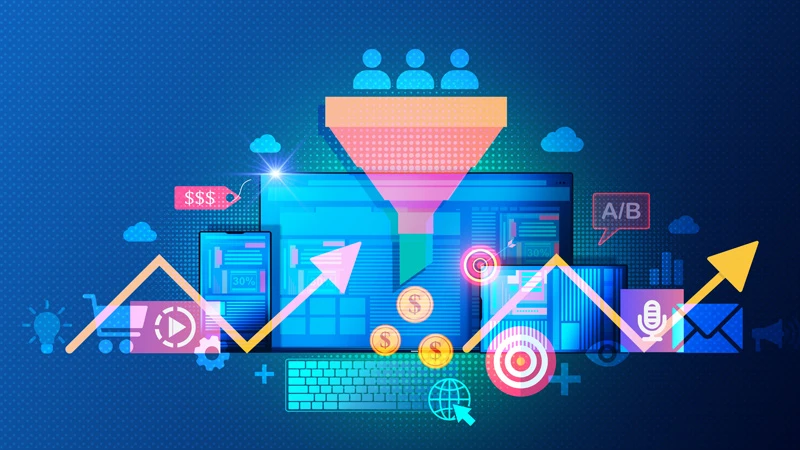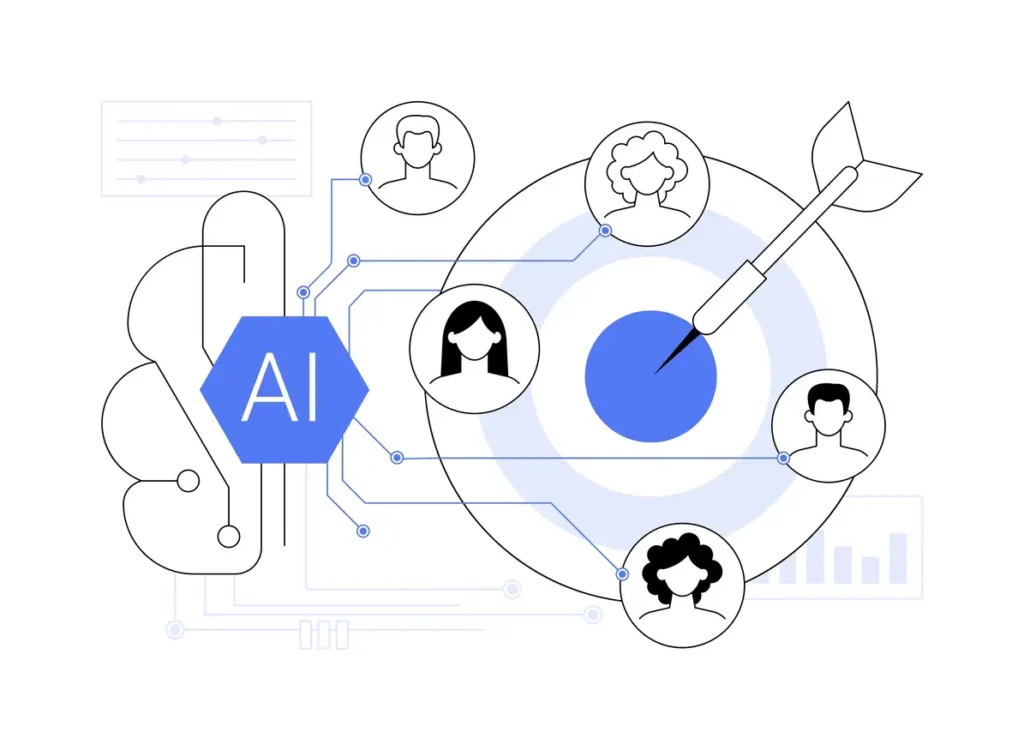Key benefits of Growth Systems For B2B for operational efficiency
Open Efficiency and Growth With AI Automation for B2B Firms
AI automation is changing the landscape for B2B business. It enhances operations and decreases dependence on human treatment. This change allows organizations to make quicker, data-driven choices. As organizations check out which refines to automate, they must additionally take into consideration the right tools to implement. Obstacles stay in adopting AI innovation. The effects of these changes could form the future of several firms in methods yet to be totally understood
Understanding AI Automation in the B2B Context
As companies significantly seek performance, understanding AI automation in the B2B context comes to be important. AI automation involves using sophisticated modern technologies to enhance procedures, minimize human intervention, and improve decision-making procedures. In the B2B landscape, this can materialize in numerous types, such as automating client service interactions, handling supply chain logistics, or maximizing marketing projects. Business can take advantage of AI to examine enormous datasets rapidly, allowing them to recognize trends and insights that inform tactical choices. Moreover, AI systems can incorporate flawlessly with existing innovations, offering a cohesive platform for managing business functions. This understanding lays the foundation for companies to check out just how AI can transform their operations, enhance productivity, and inevitably foster sustainable development in an open market.
Key Advantages of Applying AI Automation

Determining Procedures Appropriate for Automation

Picking the Right AI Equipment for Your Company
When B2B firms consider automating their processes, picking the right AI tools ends up being vital for attaining preferred outcomes. Companies ought to begin by reviewing their special needs and goals, making sure placement with company goals (Minarik AI). Examining the integration, versatility, and scalability capacities of potential tools is crucial, as these aspects determine long-lasting efficiency. Organizations needs to also think about user-friendliness and the degree of assistance provided by vendors, as these aspects can influence effective implementation. Furthermore, analyzing client testimonials and study can supply understandings right into just how specific AI remedies perform in real-world scenarios. By thoroughly picking AI devices that fit their functional needs, B2B firms can enhance efficiency and drive growth while reducing potential interruptions
Conquering Difficulties in AI Fostering
B2B business commonly run into substantial obstacles in taking on AI innovations, especially problems associated with data high quality and resistance to change management. Poor information top quality can impede the efficiency of AI systems, while worker reluctance to embrace brand-new procedures can stall implementation initiatives - Growth Systems For B2B. Attending to these difficulties is vital for successful AI assimilation and optimizing its possible benefits
Data Top Quality Issues
Ensuring high data quality is important for the successful adoption of AI modern technologies in business-to-business settings. Unreliable, incomplete, or outdated information can significantly prevent AI initiatives, leading to erroneous understandings and bad decision-making. Companies usually deal with challenges such as information silos, variances across various sources, and an absence of standardized information formats. To get rid of these problems, companies need to invest in information cleansing, combination, and administration processes. Applying robust information management methods guarantees that the information fed right into AI systems is pertinent and reliable. Additionally, fostering a culture of information quality understanding amongst workers can boost data accuracy gradually. By dealing with data high quality problems, B2B companies can launch the complete potential of AI automation, driving effectiveness and development.
Adjustment Management Resistance

Measuring the Effect of AI Automation
Gauging the effect of AI automation in B2B companies calls for a clear understanding of crucial performance signs (KPIs) that line up with business purposes. Efficient data evaluation techniques are important for translating the results, while durable ROI evaluation strategies aid figure out the financial advantages of automation initiatives. Together, these parts supply a comprehensive framework for examining AI's contributions to business success.
Trick Performance Indicators
Key efficiency signs (KPIs) work as essential devices for B2B business to assess the efficiency of AI automation initiatives. By developing clear metrics, companies can measure renovations in functional effectiveness, price decrease, and revenue development straight attributable to automation. Common KPIs include cycle time decrease, mistake rates, client complete satisfaction ratings, and staff member productivity levels. These indications provide insights right into just how AI systems are optimizing processes and boosting general efficiency. Additionally, tracking KPIs allows firms to identify areas for additional enhancement and to line up AI automation initiatives with strategic company goals. Inevitably, a distinct framework of KPIs guarantees that B2B business can quantitatively assess the effect of AI automation on their procedures and drive continual development.
Information Evaluation Techniques
Effective data analysis methods play a crucial duty in evaluating the impact of AI automation within B2B companies. By utilizing analytical methods, organizations can identify trends and patterns in operational data, allowing them to assess the performance acquires achieved via automation. Methods such as regression evaluation and time series forecasting supply insights into how AI-driven procedures influence productivity and decision-making. Additionally, information visualization devices can effectively communicate searchings for to stakeholders, helping with notified tactical decisions. Machine learning formulas can better improve analysis by predicting future end results based upon historical data, supplying workable insights. Ultimately, these methods allow B2B companies to gauge success and optimize their AI automation campaigns, making sure positioning with business purposes and improving overall efficiency.
ROI Evaluation Techniques
Reviewing the return on financial investment (ROI) of AI automation is essential for B2B firms seeking to understand the economic implications of their technical efforts. Companies can utilize numerous ROI analysis techniques to determine the efficiency of AI executions - Growth Systems For B2B. One effective technique involves computing cost financial savings by comparing operational expenditures before and after automation (Minarik AI). Furthermore, measuring performance enhancements through vital efficiency indicators (KPIs) aids measure the benefits of AI. Consumer fulfillment metrics can likewise provide understandings into the influence of automation on service high quality. To guarantee a thorough evaluation, companies need to consider both straight monetary returns and abstract advantages, such as boosted decision-making abilities and affordable advantage. This diverse evaluation makes it possible for B2B business to make informed choices pertaining to future investments in AI innovation
Future Patterns in AI Automation for B2B Firms
What innovations lie in advance for AI automation in B2B companies? Emerging fads indicate a considerable shift towards boosted information analytics capabilities, making it possible for businesses to make more educated choices. Predictive analytics will end up being significantly vital, permitting firms to anticipate market modifications and consumer demands. Additionally, the combination of AI with Web of Points (IoT) modern technology is expected to improve operations by supplying real-time understandings and automation of procedures. Companies will likewise concentrate on enhancing consumer experiences via personalized advertising driven by AI algorithms. Innovations in all-natural language handling will assist in much better communication between companies and clients. As these trends develop, B2B companies must adapt to utilize AI automation properly, making certain continual growth and competitive advantage.
Regularly Asked Inquiries
What Industries Advantage one of the most From AI Automation in B2B?
Manufacturing, finance, medical care, and logistics sectors benefit the most from AI automation in B2B. These fields utilize AI to enhance processes, boost decision-making, and boost general operational effectiveness, driving considerable growth and technology.
Exactly How Does AI Automation Effect Employee Responsibilities and Responsibilities?
AI automation reshapes employee functions and obligations by improving repetitive tasks, allowing workers to concentrate on strategic initiatives. This shift fosters ability development, enhances productivity, and urges collaboration, ultimately driving business development and innovation.
What Are Common Mistaken Beliefs About AI Automation in B2B?
Common mistaken beliefs concerning AI automation read what he said in B2B consist of worries of task loss, ideas that AI can totally change human judgment, and undervaluing the value of collaboration in between AI systems and employees for optimal outcomes.
Exactly How Can Organizations Make Certain Information Privacy With AI Automation?
Businesses can guarantee data personal privacy with AI automation by applying robust encryption protocols, sticking to regulative conformity, conducting regular audits, and training workers on information taking care of techniques to mitigate threats and safeguard sensitive info.
What Are the Expenses Connected With Applying AI Automation?
The prices associated with implementing AI automation include software purchase, facilities upgrades, training workers, continuous maintenance, and potential downtime during integration. Additionally, firms might sustain expenditures connected to information safety and conformity steps.
Determining the influence of AI automation in B2B companies requires a clear understanding of key efficiency indications (KPIs) that line up with company objectives. Key efficiency signs (KPIs) serve as important tools for B2B firms to examine the efficiency of AI automation efforts. Efficient data evaluation strategies play a vital function in assessing the impact of AI automation within B2B firms. Reviewing the return on financial investment (ROI) of AI automation is necessary for B2B business seeking to recognize the monetary implications of their technical initiatives. What innovations exist ahead for AI automation in B2B companies?